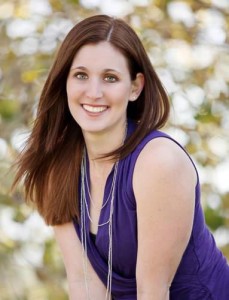Happy Monday Framers!
Enjoy this MFA Monday installment by
Dr. Alexis Weisbord!
——————————
Part 2: Thinking Beyond
Five years is a long time and a lot can happen during that time. When I moved to California in August 2005, I didn’t know exactly where I was going to end up in June 2010, but I would have told you one definite thing: I would not be in Riverside County. Yet here we are in April 2013 and guess where I am… that’s right, Riverside County.
As I previously mentioned, I entered grad school with no attachments that I was obligated to attend to or return to, so I figured when it was all over and done with I could go wherever the wind took me. I envisioned applying for fellowships and visiting positions, and I was going to live my dream of traveling and moving. I did not have any interest in setting roots anywhere yet, and then the most amazing complication occurred: I met a wonderful partner. This was wonderful for all the reasons and benefits that make having a partner desirable: he was a tremendous support through the entirety of my exam and dissertation process, he happily pushed the cart at Trader Joes and didn’t judge me for the 12 bottles of wine I’d picked out, he calmly listened to me stress about the writing process, and he was never bothered by the odd hours I kept. But… and most people wouldn’t read this as a problem, he already had a job. Not just a job, a career. And one he really loves. He spends his days getting paid for something he would happily do for free most days. And if that wasn’t good enough, it is incredibly stable and has great benefits. Again, who would ever complain about such a wonderful fate?! Apparently me.
There I was, recently out of school, newly married, and tied down to a city (more like a town) where my degree was completely useless. In a desperate attempt to find some work that didn’t involve pouring coffee or serving food, I applied to teach at a local studio. They had a competitive team program that was good but not the best in town, they seemed to like the class I taught, and I thought I had a great interview. I was so willing to do this job I even offered the same (low) rate I was offering when I was first out of undergrad. Yet, the same day my degree was conferred I was notified that I didn’t get the job. I was beat out by a student in the community college program I was an adjunct in. As far as I can tell, this was because she probably offered a rate that was a fraction of what I offered. Two degrees in dance, a dissertation on competition dance, years of experience teaching in studios and colleges as well as almost a decade working for competitions and I was unable to get a job at a studio.
With the exception of a local community college program, I quickly realized that I lived in a wasteland for the arts, or at least for the kind I was trained and qualified for. I was, and still am, on faculty at the college; however, California’s badly damaged economy has limited the opportunities I will have at this program for years to come. I applied for both part and full time positions within a 100-mile radius, and after some time, I started to realize that taking a job with a 90+ minute commute (each way) was insane if I ever hoped to have a family and be a part of that family.
I began to conceptualize what kinds of options might be out there for me. I began to think about all the other career paths I could explore that would require the skills of my PhD, even if it didn’t require the degree itself. I realized that since the jobs I thought I wanted five years earlier were not only difficult to come by because of the plummeting economy, but were even more difficult to find because I was now geographically limited. Since the community I lived in had no jobs for me, it was time for me to create my own work.
I have more or less taken every position that has been offered to me. Any day of the week you can find me donning four or five different hats. I once went to an event where I represented three different organizations simultaneously. Since completing graduate school, I have taught part time at three different collegiate institutions (including in a Global Studies program), began managing a small, but busy, professional dance company, became part of a collective of choreographers that produces events and workshops locally, found a local studio that I love teaching at, and I started my own local dance company. Meanwhile, I find ways to collaborate with long distance colleagues on scholarly work.
On my worst days I feel like my brain is going to fracture and cause me to lose my mind. On my best days I am completely fulfilled, feeling like I am not missing out on a single part of the wonderful world of dance. I get to teach all ages, and I get to perform when I want. I’ve learned that I love managing productions, and I never feel pressured when I sit down to write or research because it is always by choice. My days can be exhausting and I am excruciatingly underpaid because many of these positions are with brand new organizations that I am helping to build, but I see potential for a future in this wasteland that I live in. I see a future that I not only like, but a future that might just need someone exactly like me to help it succeed. The way I see it, no one may think that I am valuable now, but if I help to show them what I can do and what they are missing, then maybe one day there will be a local need for me and my degree.
I’d like to acknowledge that none of what I am doing in this effort is done alone. I have a small network of local colleagues who not only provide me opportunities but also support my endeavors. Together, I see us building a community that will not only provide for us but also for our neighbors. I am fully aware of the fact that my unstable lifestyle is made feasible by the fact that I have a partner whose stable job gives us many benefits, including health insurance. Because of this, I am able to take career risks that might not be smart decisions otherwise, so I recognize that this path may not be for everyone.
What I do encourage anyone, regardless of their marital status, geographic location or financial stability, to consider, however, are the many possibilities for their skills and degree. In academia, it is not uncommon to be conditioned to follow a narrow career path. But, just imagine what our world would look like if more arts administrators were MFAs or Ph.D. Imagine what it would look like if those on grant panels were working artists and not reps from corporations. Imagine if the majority of teachers in dance studios had MFAs. As other bloggers have said, you won’t be rich, but none of us go this direction for the money. So get creative about what you could do, because the possibilities are endless!

Dr. Alexis Weisbord received her BFA in Dance from University of Minnesota and her PhD in Critical Dance Studies from UC Riverside. Alexis was a competitive dancer in high school and later spent over ten years directing dance competitions throughout the US. Her dissertation was entitled “Redefining Dance: Competition Dance in the United States” and she has a chapter, “Defining Dance, Creating Commodity: The Rhetoric of So You Think You Can Dance,” in the forthcoming Oxford Handbook of Dance and the Popular Screen. Alexis has held positions as Lecturer in Global Studies at UC Riverside and Associate Faculty in Dance at Norco College. Currently she is an Associate Faculty member at Mt. San Jacinto College, Managing Director for The PGK Dance Project in San Diego, and founder/co-director of an emerging dance company, Alias Movement.

